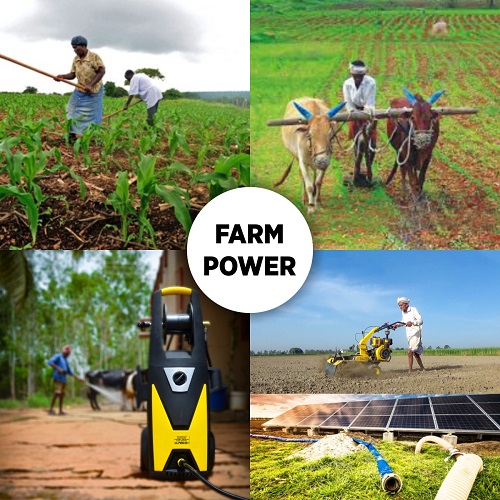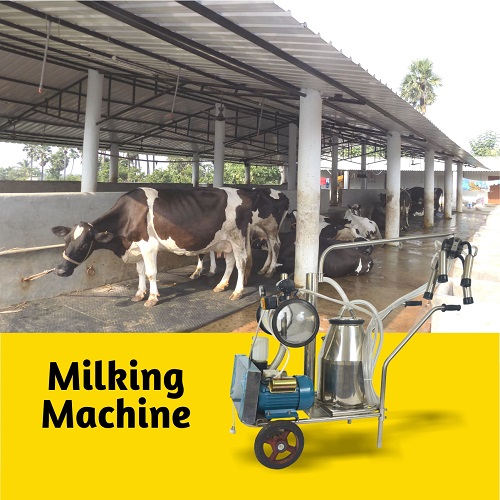Technology: A Solution To Tamil Nadu’s Water Crisis
Agriculture is an important sector in the economy of a state; being the principal source of livelihood, it provides wages, goods and raw materials for the industrial sector. Looking into the context of Tamil Nadu, it was ranked ahead of other states in terms of productivity of important crops. Unfortunately, this sector’s growth has been deteriorating due to severe drought conditions caused by a major rainfall deficit.
Rapid urbanization and industrialization has increased the conversion of agricultural land for non-agricultural use. Active water management in response to changes in rainfall patterns and urban & industrial water usage, is the need of the hour. Ground water recharge and lake & pond rejuvenation, rain-water harvesting projects are a must to mitigate severe water crisis. Soil health restoration, improved seed varieties and draught friendly package of practices are now urgent.
Approximately 80% of our farmers are in “small & marginal” category, with small plot sizes. While this is seen as deterrent, now affordable technology is available to overcome the challenges. Farmers across India, not just in Tamil Nadu, are under distress due to many of these issues.
This is a complex problem, and in this article, we will address only 3 parts of the required multi-faceted solution.
Aerobic Rice:
Paddy cultivation today consumes the highest amount of fresh water, more than industrial and residential usage. However, with development of Aerobic varieties and hybrids of Rice, there is no need of flood irrigation, no need of nursery and transplantation, and the farmer maybe able to rely completely on rains, with only small amount of irrigation in case of critical water shortage. Aerobic rice reduces fertilizer and pesticide requirement which further improves soil and grains, at the same reduces farmer’s cost of cultivation. More types of seeds need to be developed and farmers need to be educated about Aerobic rice. Researchers at TNAU (Coimbatore) have done a lot of work in Aerobic methodology, so local expertise is available within Tamil Nadu.
Smart Micro Irrigation:
Tamil Nadu has been hit by drought many times due to low or erratic and untimely rainfall. This results in huge losses by the farmers which get further compounded by loans. For many years government has been promoting Micro-irrigation practices for horticulture and plantation actively. Now micro-irrigation needs to expand to field crops for cereal grains. Water scarcity is so acute that even these micro-irrigation projects must be upgraded for intelligence and automation e.g. to water based on soil moisture levels, ambient temperature, to reduce evaporation losses, and improve crop health. Unfortunately, within a few decades it will have to be mandated. Further, sub-surface irrigation, an irrigation method reduces evaporation loss, can be exploited.
Mechanization:
Seed drills and Transplanters enable a farmer to plant seeds or nursery seedlings in rows with controlled spacing. This directly improves health of crop because it doesn’t need to compete with extra plants (thinning step in cultivation is virtually eliminated), it reduces the consumption of water and nutrients, seed rate is optimized, and the fields become ready for effective use of micro-irrigation system. It is important to note that micro-irrigation success depends on fixed spacing of the plants. For small and marginal farmers small seed drills which can be operated using inter-cultivators (aka power-weeders) are easily available now. Mechanization of weeding using brush cutters, hoe cutters without disturbing the soil would reduce the evaporation loss.
All 3 of the above points have reached critical juncture and need to be encouraged by the government and farmer focused NGOs. Further, rain water harvesting and subsequent recharging of borewells and farm ponds should be encouraged. Lining of farm ponds would prevent the seepage loss of water. Mulching in should be used as a critical water conservation method especially in drought hit areas.
Such severe conditions prove to be a threat not only for the state, but for the economy of the whole country. Tamil Nadu, with highly educated population, can lead the country in modernizing agriculture. Effective use of technology is the only way to counter farming sector distress. Technology will increase farm productivity, and income of both farmer and labour.




